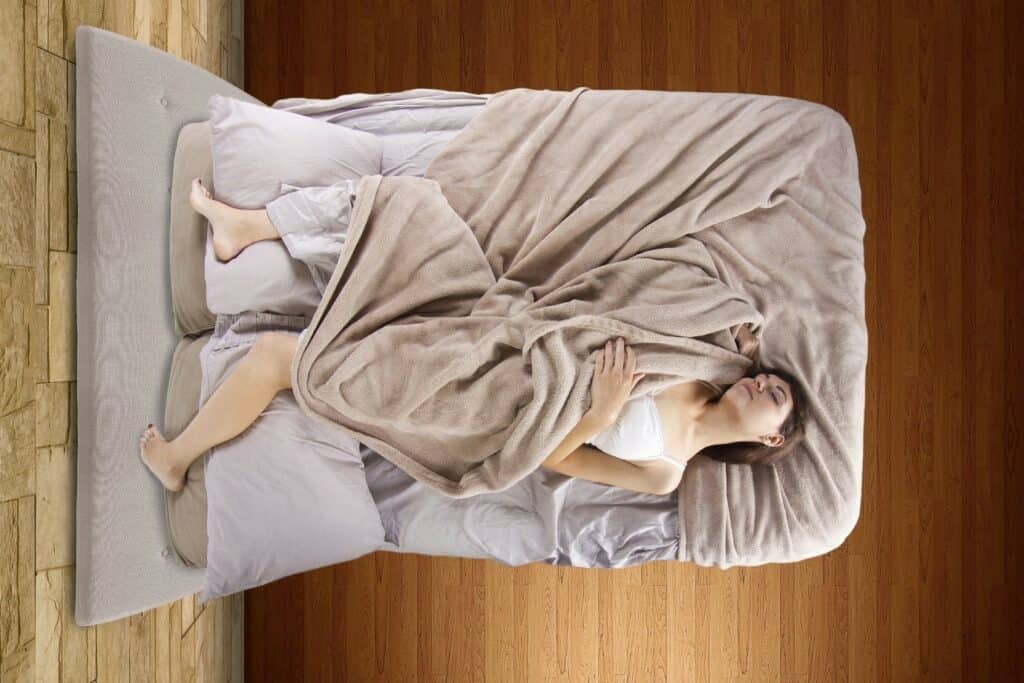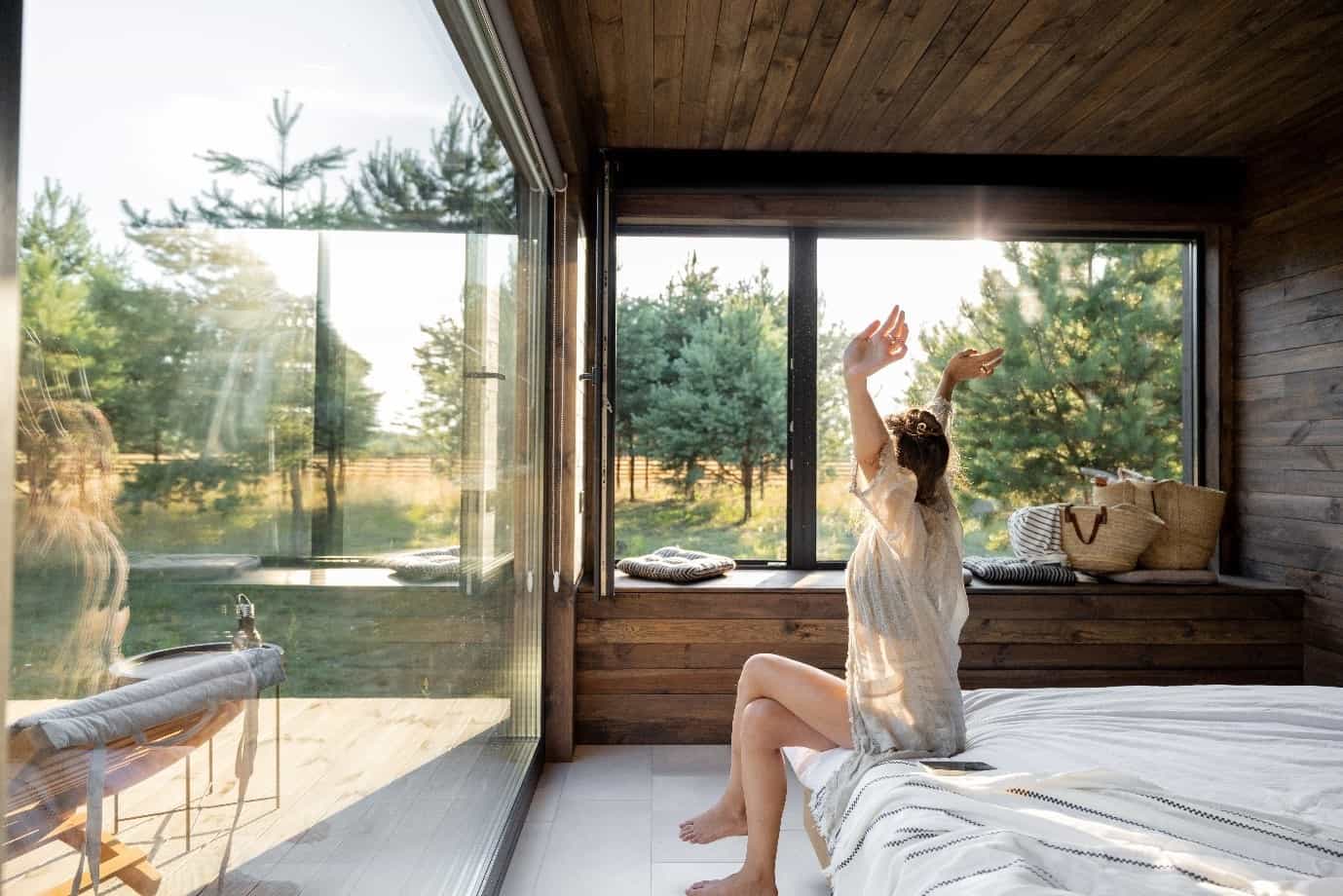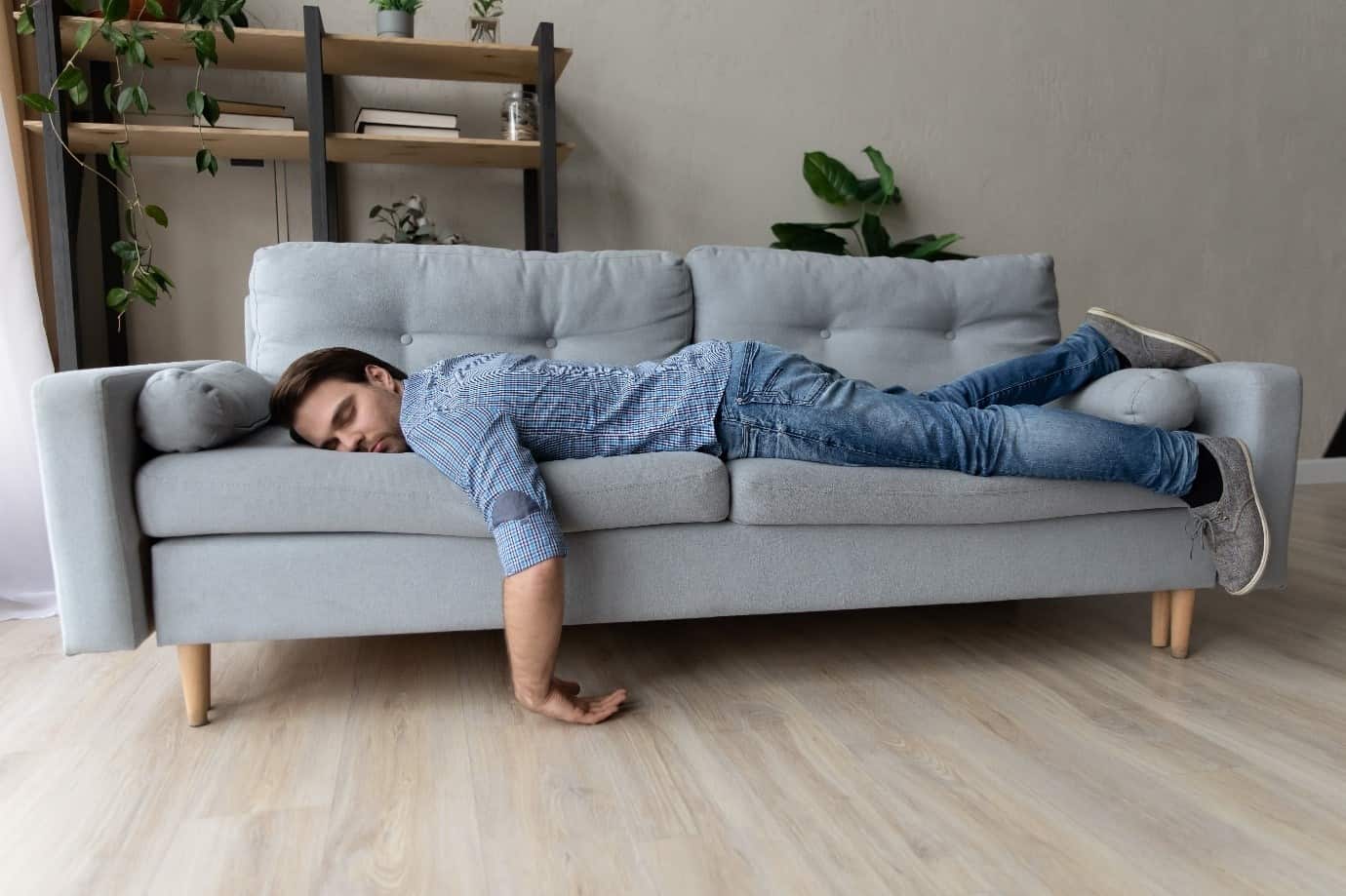Tossing and turning to get to sleep can be a waking nightmare. You may be at your wits end trying to figure out how to sleep better.
Sleeping well is a must every night. It is good for your health. When you have trouble sleeping your body does not get the rest it needs to face the next day’s challenges. Your body heals and repairs at night while at rest. It eliminates the build-up of emotional and physical toxins, and works to repair any damage to the tissues. So you wake in the morning feeling bright and fresh ready to face the day.
When you do not get enough sleep, your body cannot repair itself so you wake feeling hungover, groggy and sluggish. This can make it difficult to function normally. So how to sleep better?
It is not just about getting to sleep. The quality is important too. While you may be getting eight hours a night, if it is continually disturbed the quality of your sleep degrades. Disturbances can be external or it may be the level of emotional stress built up during the day. If you do not release that stress through exercise or relaxation techniques, it can come back to haunt you at night.
But there is something you can do about it. Here are some tips to show you how to get a better sleep each night.
Create a restful environment
Creating a restful environment is key to how to get better sleep. The better the environment, the better you sleep. You can create the perfect environment by:
- Removing all traces of work. Your bedroom is not the place for a home office or to pay the bills. It brings stress into the bedroom.
- Decluttering the room. How can you sleep better in a room full of clutter? There is nothing relaxing about clutter. Invest in more storage so you can put it away.
- Maximising your comfort. The quality of your bed and bedding makes a difference to your quality of sleep. Make sure your mattress and pillows are comfortable and your sheets and quilts breathe so you do not overheat.
- Optimising bedroom temperatures. When your bedroom is too hot or cold, it will be difficult to sleep. Around 19 degrees Celsius is the optimal temperature for uninterrupted sleep. Keep your bedroom at a regulated temperature to help you sleep better.
- Not having electronic devices in the bedroom. The bedroom is not the place for electronic devices including a television and your smartphone. The light from them can alter your sleep cycle resulting in not sleeping well.
A regular sleep schedule
Set up a regular sleep schedule if you want to know how to sleep better. It is well known that you need between seven and eight hours sleep every night to wake up in the morning well-rested.
Actively create a regular sleep schedule so it is easier to get the high quality sleep you need. When you put good habits in place, it makes it easier to fall asleep and remain undisturbed.
To do this, go to bed and wake up at the same time each day. Even on weekends. Consistency reinforces your body’s sleeping cycle.
If you go to bed and do no fall asleep within 20 minutes, get up and do something that relaxes you. Read a book. Listen to music. Watch a movie. Go back to bed when you feel sleepy. Do this as often as you need to but still maintain your regular sleep schedule and wake up at the same time.
Limit your daytime napping
While taking a nap can be restorative, it can also affect how you seep at night. When you want to know how to sleep better, here is the best way to use naps to your advantage.
Benefits of napping
Napping is beneficial. They can help to:
- Improve your mood.
- Feel relaxed.
- Improve how you function.
- Become more alert.
- Reduce tiredness and fatigue.
Drawbacks of napping
Not everyone benefits from a nap. You may not be able to sleep during the day or anywhere other than in your bed.
Negative effects of napping can include:
- Trouble sleeping at night. When you keep your naps short they will not normally affect how you sleep at night. But sleeping for an hour or more during the day could be disruptive. Set an alarm for no more than 30 minutes or so before you take a nap.
- Sleep inertia. Napping for too long can leave you feeling worse. You may feel disorientated and even tireder when you wake up.
When to take a nap
Take a nap when you:
- Feel tired or fatigued.
- Experience a loss of sleep.
- Plan them as part of your daily routine
Get the best out of napping
Napping can show you how to sleep better. To get the best out of napping:
- Make them short. Naps are most beneficial when kept short. No more than 10 to 20 minutes. That is enough for it to be restorative. The longer you sleep during the day, the drowsier you may feel when you wake up.
- Early afternoon is best. Napping too late in the day will interfere with your regular sleep patterns at night. Try to only nap before 3 pm.
When you wake from a nap give yourself time to fully wake up before going about your daily activities.
What you do during the day sets you up for success
What you do during the day sets you up for success at night. Try the following steps to help you sleep better at night:
- Watch how much caffeine you consume. Caffeinated drinks are extremely popular—coffee, tea and soft drinks. You may use them to help you stay awake during the day. But it will not work for long and sets you up for sleep deprivation. To avoid this, watch how much caffeine you consume. It is also wise to stop drinking it later in the day or it may prevent you from sleeping.
- Avoid too much alcohol. Alcohol can make you sleepy so you may use it as a nightcap before turning in. What you may not know is that it degrades the quality of your sleep. So it is a good idea not to drink it too close to going to bed.
- Expose yourself to the light. Exposure to light regulates your internal biological clock. And sunlight is the best. Try to make sure you get out into the natural light. Open up the curtains and blinds to let the light stream in. A god dose of light in the morning normalises your circadian rhythm.
- Avoid eating late at night. Limit eating large fatty or spicy meals late at night. It is really difficult to sleep while trying to digest food. When hungry, snack on something healthy instead.
- Get out and move. Getting out and exercising helps promote healthy sleeping patterns. It uses pent up energy and clears your mind of stress. The only thing is, avoid exercising too close to going to bed.
- Only use your bed for sleep and sex. While it is tempting to hang out in your bedroom doing all sorts of activities, this may prevent you from sleeping. It is important to develop a strong mental connection between your bed being the place to sleep. So try to limit your bed to sleeping and sexual activities.
Develop a routine before going to bed
Learning how to sleep better is essential when you have trouble sleeping. You may worry about going to bed because you know sleep will elude you. But the problem does not necessarily start when your head hits the pillow. It is important to develop a routine before going to bed.
Some of your habits before going to bed may prevent you sleeping and cause other problems. While it can take time to change them, it will pay off.
Create a nightly routine. This will send your mind signals that it will soon be time to sleep. The following three tips can hep reinforce your new healthy habits:
- Spend 30 minutes winding down. Spend 3 minutes winding down—listen to music, read a book, do some relaxation exercises or low impact stretching This will put you in the right frame of mind ready to sleep.
- Turn off electronic devices. At least 30 minutes before bedtime turn off all electronic devices. This will make it easier to wind down.
- Turn the lights low. Turn the lights down low around 30 minutes before bedtime. It will help your body produce melatonin which is a hormone that helps you sleep.
When you have trouble sleeping
When you have trouble sleeping:
- Use relaxation techniques. Instead of trying to go to sleep, focus on relaxing. Do some deep breathing or mindfulness meditation until you fall asleep.
- Kee a sleep journal. Keep a daily sleep journal so you can track your sleeping habits. It will help you track down what helps or detracts from you sleeping each night. Document the things you are doing and how well they work.
- Try different things. Having trouble sleeping can be complex. The methods that work for one person may not work for you. Try different things until you find what works. Do not give up as it can take a while before you find what works best for you.
Positive Auditory Stimuli Technique
The positive auditory stimuli technique (PAST) targets the unconscious brain to change cognitive behavior. This works because all emotional and mental problems usually have their foundation in this area. It retrains the brain’s unhealthy patterns via the unconscious part of the brain.
There are seven major factors that contribute to mental illness—stress, negativity, worry, fear, dwelling on the past, low self-esteem and a lack of confidence. While 60% of these factors are genetic, 40% are conditioned. Everyone inherits a blueprint at the time of birth. These create default patterns such as how you see the world, and how you react and behave.
Working with the unconscious brain to change conscious behavior may help address inherited thought patterns and behavior that are the root cause of your sleeping problems.
By accessing the innate intelligence of the unconscious brain, the PAST may help your brain to change negative, ineffective experiences so they become happier and joyful.
PAST also compliments other ways to help you sleep better. It is totally natural and will not interfere with any medication you are taking or your therapy sessions. Try the Emotional Empowerment Program using the Blissiree app. Download it now to discover how it can help you get fast relief. Try it for free.
Key takeaways
There is a lot you can do to improve your sleeping habits:
- You can learn how to sleep better.
- Have a regular sleep schedule.
- Set yourself up for success.
Look after your health and wellbeing
Now there is a way to get immediate relief from anxiety.
Download Blissiree now!
Access the free Emotional Empowerment Program Introductory Session today through the Blissiree app. 98% of people notice a change after the first session. The results speak for themselves.
Don’t just believe us. The evidence stacks up. A peer-review study published by the European Journal of Medical and Health Sciences reported significant reductions in anxiety, depression, stress and worry using this program.
Hear what others have to say
Dr Karen Viera, Ph.D. talks about Blissiree and its mental health programs.
Watch our latest documentary
Blue Rain – PTSD The Silent Suffering
It follows Gavin, Melissa, Grant and Kelly’s journey to recovery using the Emotional Empowerment Program methods.




